Honorary and Invited Speakers
Honorary speakers
Jubin Abutalebi
University Vita Salute San Raffaele, Italy; The Arctic University of Tromsoe, Norway

Preventing dementia through bilingualism
Dementia is an umbrella term for a set of neurodegenerative diseases (of which Alzheimer’s disease (AD) is the most common one) with debilitating symptoms, primarily impairment of memory and other cognitive abilities, eventually leading to the loss of autonomy over everyday activities. It is the leading cause of disability for older adults (World Health Organization, 2017). Older age is commonly (but not for all types of dementia) a risk factor for development of the disease. As the average age of the global population increases, dementia is becoming a heightened burden in both societal and financial terms around the world. Dementia was estimated to lead to annual costs of almost a trillion USD in 2016, with predicted annual increase of this amount by 15.94% (Xu et al., 2017). As there is currently no pharmacological cure for dementia, special interest has been devoted to understanding the factors that can help delay the onset of aging symptoms and promote the longevity of healthy life and cognition. Tackling dementia via preventive or treatment measures has thus been defined as a top societal and scientific objective. In the absence of a pharmacological cure, it is important to identify and study factors that contribute to cognitive resilience in healthy older individuals and people with dementia. According to the cognitive reserve hypothesis, high-reserve aging seniors experience functional compensation for neural atrophy and, thus, are able to maintain relatively stable cognitive function with no or smaller-than-expected impairment. Several lifestyle factors such as regular physical exercise, adequate and balanced nutrition, and educational attainment have been widely reported to contribute to reserve and, thus, lead to more successful trajectories of cognitive aging. In recent years, it has become clear that bilingualism is also a potential and potent reserve contributor. Yet, there is little communication between the neuroscience of bilingualism research community and researchers working in the field of cognitive aging more generally, despite compelling reasons for it. In fact, bilingualism tends to be overlooked as a contributory factor in cognitive aging literature, or reduced to a dichotomous trait, despite it being a complex experience. During my presentation, I will discuss the benefits of including bilingualism as a protecting factor for cognitive aging.
The honorable talk is organized in the framework of a research grant funded by the Ministry of Science and Higher Education of the Russian Federation (grant ID: 075-15-2022-325)
Time and date of presentation: April 6, 2023 at 18:00 (UTC+3)
Format of presentation: Online
Alexandre Barreto de Souza
General Superintendent at CADE
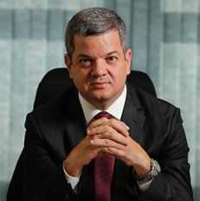
Problems of the Digital Economy Regulation Through the Prism of Competition Development and Brazilian experience
Global digitalization has brought with it not only many benefits, but also challenges for competition authorities around the world. The complex and flexible nature of digital giants demands the legislation, and above all antitrust legislation, be adapted to the realities of the ecosystem economy. Throughout the world today, competition authorities and researchers are seeking new approaches to understand and regulate the digital competitive environment and to develop effective antitrust tools. Is it possible to overcome the hegemony of Western IT-giants? How can the BRICS plus countries harmonize their approaches to regulating digital markets, and what steps have already been taken in this direction? What is Brazil's specific experience on this issue: the most striking cases of recent years, best practices? Where can Russia and Brazil find common ground?
Time and date of presentation: April 11, 2023 at 14:30 (UTC+3)
Format of presentation: Face-to-face
Tembinkosi Bonakele
Wits University, Ex-commissioner of the South African Competition Commission (from 2013 to 2022)
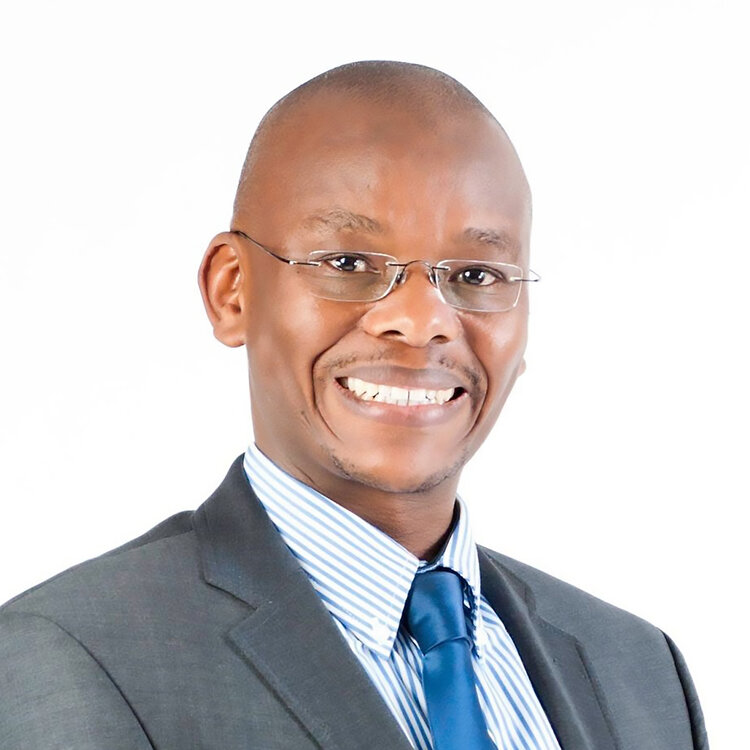
Challenges and Opportunities for South Africa in the New Geopolitical Reality
Since the first democratic elections held in 1994, South Africa has undergone a complex path of political transformation and socioeconomic development. While continuing to struggle with the consequences of apartheid, inequality and economic problems, the country is focused on full integration into the global community. In August 2023, South Africa will host the 15th BRICS Summit as part of its presidency in the organization under the theme: “BRICS and Africa: Partnership for Mutually Accelerated Growth, Sustainable Development and Inclusive Multilateralism”. How does the country participate in the formation of a multipolar system of interstate relations? In what areas can South Africa and Russia cooperate most effectively? What measures are being taken in South Africa to stabilize the economy during the global crisis? And what tools does the competition policy have to eliminate imbalances in an emerging economy?
Time and date of presentation: April 10, 2023 at 18:00 (UTC+3)
Format of presentation: Face-to-face
Claude d'Aspremont
Center for Operations Research and Econometrics, Belgium
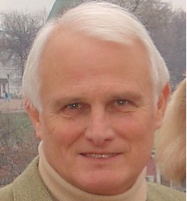
General oligopolistic equilibrium and Cournotian competition
We propose subdividing the oligopolistic sector of an economy into several groups in order to simplify firms’ conjectures and reinforce tractability. In the limit case, where perfect substitutability holds within each group, using this approach, Cournotian competition in general equilibrium can be introduced more simply than in the Cournot-Walras approach. The technique we’ve developed is also useful for empirically analyzing the interaction of groups within an industry.
Time and date of presentation: April 12, 2023 at 14:30 (UTC+3)
Format of presentation: Online
Nabil Fahmy
American University in Cairo (AUC), Egypt

A world in disorder - a view from Cairo
The world order is facing a perfect storm with its political, military and economic pillars shaking to the core. There are numerous reasons for this, but most of all, the players statically embrace archaic post-World War II concepts and statuses that were never equitable, are no longer relevant to today’s realities, and are not commensurate with contemporary challenges.
The Middle East has faced a regional tsunami of its own as well, where geopolitical balances shifted dramatically, national identities faced ethnic challenges and government to people social contracts were seriously tested. Significant challenges remain, which the region must overcome as it attempts to navigate tenuous security, political and socioeconomic pathways towards a better future for its peoples. Of utmost importance is the preservation of the nation state concept and responding equitably to legitimate aspirations under international law.
The global and regional challenges are taken on candidly and resolutely in this presentation, identifying core problems and offering potential solutions in light of over four decades of public service and in academia, focusing on international and regional security issues.
Time and date of presentation: April 5, 2023 at 10:00 (UTC+3)
Format of presentation: Hybrid
Alexander Karminsky
HSE University, Russia

From sustainability to development in a permanent crises era
The current century is accompanied by systemic crises in both the economy and society. Over the past quarter century alone, there have been about five systemically significant crises, the last of which claims to correct the world order and the system of international decisions.
In this regard, a new approach to decision-making is required, providing for a systematic assessment of efficiency and risks, taking into account macro-factors of various nature: environmental, social and managerial.
The problems of sustainable development, ESG assessment and ESG ratings have gained increased importance in the last decade, and their demonstration at some projects is a good basis for testing models. It is worth mentioning such projects and international agreements as Nord Stream-2, the transition of the European Union to renewable energy, the formation of logistics of the Northern Sea Route, the development of digital assets and the transition to digital currencies, a number of other areas of integrated development of the Russian and the world economy.
The important components of project evaluation are information and analytical support for decision-making, methods of controlling and risk management based on a rating system, and the formation of a uniform rating space.
The system of rating models has been created and is in demand among financial institutions, where mapping algorithms are used to compare rating scales and regulate rating activities.
Under conditions of permanent crises, the problems of sustainable development have become actualized. ESG ratings, their formation and regulation have come to the fore both in Russia and abroad. The respective models are now in demand.
In addition to traditional credit rating models, this report focuses on these issues, not only systematizing the results of research in this area, but also providing economic recommendations based on systemic risk models and ESG ratings.
Time and date of presentation: April 4, 2023 at 16:15 (UTC+3)
Format of presentation: Hybrid
Karin Kneissl
Minister of Foreign Affairs of the Republic of Austria (2017-2019)
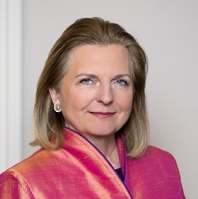
Orientation stems from Orient - or why I became the one I am thanks to the Orient
How I decided to study Arabic and Hebrew, how I organised my journey in the 1980s, why by coincidence I became diplomat, then founded my little company and due to another coincidence became Foreign Minister, crossed various hells and now reinvent my life between Lebanon and Russia. And why life is an enigma.
Time and date of presentation: April 5, 2023 at 14:30 (UTC+3)
Format of presentation: Face-to-face
Hamza Ali Malik
United Nations ESCAP
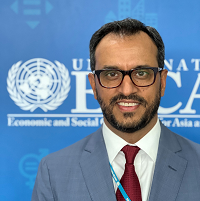
Rethinking Public Debt Sustainability Assessment for Sustainable Development Goals
Rising government debt levels, higher interest rates, and economic slowdown across the globe, amidst war-induced uncertainty, mean that the risk of public debt distress has increased for many economies and will be considerable in the coming years. At the same time, large SDG and climate-related financing needs are weighing-in on fiscal and debt positions . This implies that the scale of government responses needed for pursuing the SDGs and for climate action, especially in developing countries that most need them, are likely to remain limited. In this context we argue, in ESCAP’s Economic and Social Survey of Asia and the Pacific 2023, that public debt can be a powerful development tool, if used judiciously and with a long-term horizon, and call for a rethink of public debt sustainability assessments. The Survey 2023 proposes an ‘augmented’ debt sustainability assessment approach to supplement the approaches used by international financial institutions and credit rating agencies for assessing debt distress. Specifically, our approach incorporates national SDG financing needs, structural development policies, and SDG financing strategies in determining a country’s public debt sustainability. Inclusion of the socioeconomic and environmental benefits of investments in SDGs is found to result in public debt reduction over the long term. We also recommend sovereign debt restructuring for countries with elevated debt distress and call for an accelerated progress towards establishing common international debt restructuring and resolution frameworks, involving official and private creditors.
Registration
Time and date of presentation: April 11, 2023 at 14:30 (UTC+3)
Format of presentation: Face-to-face
Eric Maskin
Harvard University, USA (Nobel Prize winner)

A resolution of Arrow’s impossibility theorem
We argue that Arrow’s (1951) independence of irrelevant alternatives condition (IIA) is unjustifiably stringent. Although, in elections, it has the desirable effect of ruling out spoilers (e.g., Candidate A spoils the election for B if B beats C when all voters rank A low, but C beats B when some voters rank A high - - A splits off support from B), it is stronger than necessary for this purpose. Worse, it makes a voting rule insensitive to voters’ preference intensities. Accordingly, we propose a modified version of IIA to address these problems. Rather than obtaining an impossibility result, we show that a voting rule satisfies modified IIA, Arrow’s other conditions, May’s (1952) axioms for majority rule, and a mild consistency condition if and only if it is the Borda count (Borda 1781), i.e., rank-order voting.
Time and date of presentation: April 6, 2023 at 18:00 (UTC+3)
Format of presentation: Online
Vitalii Meliantsev
Russian Academy of Sciences, Lomonosov Moscow State University, Russia
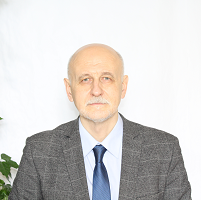
To what extend and how quickly are developing countries catching up with developed ones?
This lecture, based on a number of author's calculations, indices and models, examines the economic achievements of developing countries (RS) against the background of developed ones. The author proceeds from the premise that, in developed countries (RG), despite their preservation of leading positions in many segments of innovation and modern technologies, there is, due to the loss of a number of competitive advantages and demographic dividend, a cascading slowdown in the growth rate of per capita GDP and aggregate factor productivity (TFP; on average with 2.5% per year in 1950-1980 to 1.6% in 1980-2000. and 0.7% in 2000-2022). The situation in the RS is generally more optimistic.
Although (a) in many countries of the so-called Deep South, macroeconomic performance is generally low, (b) most Afro-Asian and Latin American countries are experiencing acute environmental and social problems, (c) the RGS, to some extent, pursue a policy of restraining the growth of several of the most successful of the RS. In general, they, thanks to the success of such countries like China and India, have made significant progress.
In 2000 - 2021/2022, the RS were ahead of the RG as a whole in terms of efficiency of capital investments by 2.5 times, in terms of the average growth rates of industrial production, and SFP – by five and two times, respectively. Their share in world GDP, which has grown by one and a half times to 3/5 over the past forty-odd years, may, with a certain degree of probability, increase to ¾ by the middle of this century.
Time and date of presentation: April 6, 2023 at 10:00 (UTC+3)
Format of presentation: Face-to-face
Branko Milanović
City University of New York, USA

Recent trends in global income distribution and their political implications
This talk will discuss the evolution in global inequality over the past two centuries, with a focus on the most recent 2008-2018 estimates, and will draw the political implications of the important changes that are taking place in global distribution of income. In particular, it will focus on the rise of the middle class in Asia, income stagnation of rich countries’ middle classes, reshuffling of global income positions, and the emergence of the global plutocracy. Furthermore, it will discuss the possible future evolution of global inequality, whereby the roles of India and large African countries will become increasingly important.
Time and date of presentation: April 5, 2023 at 11:45 (UTC+3)
Format of presentation: Hybrid
Michael Minkov
Varna University of Management, Bulgaria; HSE University, Russia

A revision of Hofstede's model of culture and Its implications for socioeconomic development
Hofstede's model of culture has enjoyed enormous popularity for decades but no major attempt was made to replicate it until 2015. A quasi-nationally representative study with large samples (n = 500 to 2,500 respondents in most countries) from over 50 countries, as well as analyses of the International Social Survey Program data, demonstrated that some of the foundations of Hofstede's theories are untenable. For instance, national anxiety is not related to approval of strict rules and laws (a presumed relationship that constitutes the backbone of “uncertainty avoidance”). Furthermore, differences between the values and personalities of men and women are not a function of “masculinity-femininity” but of individualism. This, and the impossibility to replicate masculinity-femininity with any data, makes it an illusory dimension.
Nevertheless, two dimensions - revised versions of individualism-collectivism and long-term orientation (now referred to as “flexibility-monumentalism”) are solid and replicable dimensions, forming a revised Minkov-Hofstede model of culture. Recently, Agner Fog analyzed all replicable dimensions of culture, in all models, and found that they all converge into a close 2D variant of Minkov-Hofstede. The two dimensions are closely related to, and explain, a long list of national behavioural differences, including rule of law versus corruption, gender equality, fatalities from various types of accidents, family structures, adolescent fertility, violent crime, innovation rates, etc. Alternative models of culture perform less well as predictors of those variables.
Time and date of presentation: April 14, 2023 at 10:00 (UTC+3)
Format of presentation: Online
Anil Sooklal
Ambassador-at-Large: BRICS and Asia, Department of International Relations and Cooperation and South Africa’s BRICS Sherpa
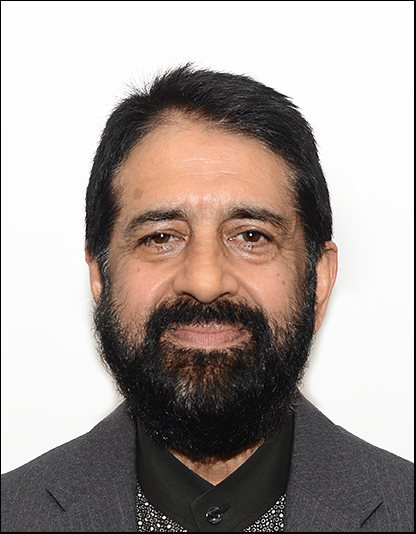
South Africa’s BRICS Chairship: Goals and Priorities
South Africa is chairing BRICS for the third time in 2023, after having chaired in 2013 and 2018 respectively. For South Africa, chairing the BRICS in 2023 also provides an opportunity to enhance the partnership between BRICS and Africa. As was the case during South Africa’s previous two chairships, we will continue to focus on Africa, as well as other key priorities to BRICS and the global South. In this regard, South Africa’s chosen theme for BRICS 2023 is BRICS and Africa: Partnership for Mutually Accelerated Growth, Sustainable Development, and Inclusive Multilateralism.
Our five key priorities that flow from this theme, for 2023 are:
· Developing a partnership towards an equitable Just Transition
· Transforming Education and Skills Development for the Future:
· Unlocking Opportunities through the African Continental Free Trade Agreement
· Strengthening Post-Pandemic Socio-Economic Recovery and the Attainment of the 2030 Agenda on Sustainable Development; and
· Strengthening Multilateralism, including Working Toward Real Reform of Global Governance Institutions and Strengthening the Meaningful Participation of Women in Peace Processes.
Our five identified deliverables are:
· 1st BRICS Workshop on Incident Management
· Establishment of the BRICS Centre for Industrial Competencies
· BRICS African JET Centre of Excellence
· Launch of the Energy Skills Roadmap
· Establishment of a BRICS-Africa WBA Platform
Under the topic of Institutional Development, South Africa will also take forward the discussion on BRICS expansion as mandated by the Beijing Declaration 2022.
Time and date of presentation: April 7, 2023 at 14:30 (UTC+3)
Format of presentation: Face-to-face
Sergey Tsyplakov
University of South Carolina, USA
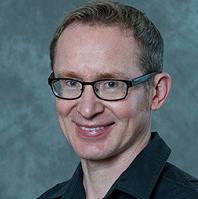
Asset sales and Chapter 11
We provide a continuous-time model of a financially distressed firm, which is able to file for bankruptcy. A key aspect of our model is the ability of the firm to sell part of its assets and use the proceeds to reduce debt and emerge from bankruptcy. The shareholders’ incentives to divest is affected by the expected length of time that the firm will be allowed to spend in bankruptcy protection and whether the firm chooses to commit to asset sales prior to entering bankruptcy. This model produces a number of testable hypotheses regarding the decisions of distressed and bankrupt firms to commit and actually sell assets. We also stress the effects of the agency problems of Chapter 11, especially if a protection period is sub-optimally long, leading to a firm’s unwillingness to commit to asset sales, delayed sales and premature bankruptcy filings. Empirical analysis of bankruptcy data supports many of the model's predictions.
Time and date of presentation: April 6, 2023 at 10:00 (UTC+3)
Format of presentation: Hybrid
Evgeny Vinokurov
Eurasian Development Bank
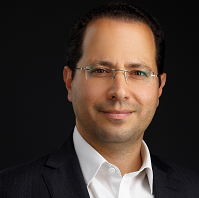
New Central Asia
The countries of the region have made significant progress in their development since 2000, and have far-reaching growth prospects. An aggregated GDP of the countries has grown by 8.6 times, inward FDI stock – by 17.2 times, the foreign trade turnover – by 8.4 times. The strategic role of Central Asia in Eurasia will strengthen due to the ongoing changes and the growth of the region's potential. One of the dynamically developing areas is transport. New transport corridors and transit routes shape the Eurasian transport framework. The restructuring of logistics chains, started in 2022, provides to the region a historic chance to take advantage of their transit position. Economic potential of the region are also associated with coordinated development of the water and energy complex, including green energy. Strengthening institutional capacity, developing the regional financial market and adapting to climate change should be important in the coming years.
The lecture is based on the report
The Economy of Central Asia: a New Perspective, issued by the EDB at the end of 2022.
Time and date of presentation: April 7, 2023 at 11:45 (UTC+3)
Format of presentation: Face-to-face
Invited speakers
Amitabh Anand
Excelia Business School, La Rochelle, France
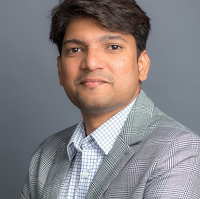
The Dark Sides in Entrepreneurship, and Business in Emerging Markets
For nearly half a century, scholars have investigated the phenomena of dark side in business ethics, organization studies and international management. In recent years, the construct has gained increased attention due to widely reported corruption, bribery, crime, violations, and other immorality undertaken by organizations, especially in emerging markets. Moreover, numerous contributions to entrepreneurship recognize its positive impact on economic and social development. However, other negative and destructive aspects of entrepreneurship are often overlooked, remain fragmented, and thus lack depth and categorizations. The dark side of activities is notorious in emerging markets, as misconduct has become more ubiquitous, affecting every nation, business, and industry of all scales and types. The United Nations claims that corruption, bribery, theft, and tax evasion cost emerging economies around US$ 1.26 trillion annually (United Nations, 2019). Meanwhile, an Ernst and Young survey finds that 42% of respondents from EMs believe that fraud and corruption are among the biggest threats to their businesses compared to 29% of informants in developed markets. Stories of entrepreneurs resorting to shady, illegal, and unethical practices are dismissed as anomalies, i.e. exceptions to the rule. This talk will present theoretical and empirical investigations of the dark side of entrepreneurship and business specific to emerging markets.
Time and date of presentation: April 5, 2023 at 18:00 (UTC+3)
Format of presentation: Online
Kirill Borissov
European university at Saint-Petersburg, Russia

Growth and distribution in models with envy
It is well documented that the marginal and average propensity to consume is decreasing as one’s income rises. This observation was the basis of the relative income hypothesis advanced by Duesenberry in the 1940s. Then, 25-30 years, later Schlicht and Bourguignon developed mathematical models based on this hypothesis. A distinguishing feature of these models is that the population becomes divided into two classes, the rich and the poor. However, these models use a consumption function with no microeconomic foundation.
A possible approach to the rationalization of the relative income hypothesis is to introduce negative consumption externalities (envy) into consumers’ utility functions. In this case, on equilibrium paths, the population is also divided into two classes. Moreover, such a rationalization gives us an opportunity to analyze the impacts of different economic policies on economic growth and income and wealth inequality.
Time and date of presentation: April 11, 2023 at 16:15 (UTC+3)
Format of presentation: Online
Louis Chauvel
University of Luxembourg, Luxembourg

The distortion between income and wealth inequalities: an international perspective, including Russia. The honorable talk is organized in the framework of a research grant funded by the Ministry of Science and Higher Education of the Russian Federation (grant ID: 075-15-2022-325)
Trends in income and wealth inequality are not parallel. In an international comparison, using the LIS and WID databases, the relative stability of incomes is accompanied by skyrocketing distribution of wealth at the top. The development of a new indicator, the Extreme Wealth to Income Ratio (EWIR), shows how top population segments in terms of wealth levels have disproportionately benefited from socio-economic changes over the last two decades. From this international perspective, the case of Russia is of particular interest to illustrate the emergence of this new age of extremes.
Time and date of presentation: April 12, 2023 at 16:15 (UTC+3)
Format of presentation: Online
Alastair Crooke
Conflicts Forum, United Kingdom
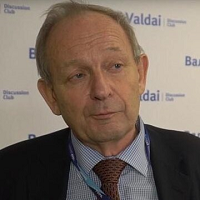
Israel transformed, and with a radical project: is war inevitable?
What is occurring in Israel is a structural and demographical antithetical opposition that has been progressing towards its inevitable explosion for at least the last 23 years, i.e. from when PM Sharon made his provocative march on Al-Haram al-Sharif. It was he who lit the fuse to the radical nationalist movement. Twenty years on, the Settlers and the religious factions have reached the top and plan to remain there.
The largely secular Israeli protestors challenging Netanyahu's “judicial reform" project represent the former Ashkenazi professional ruling class who were deposed by the Mizrahi “underclass” of settler extremists and religious Zionists in the most recent elections. The latter have been waiting decades to achieve power. Now they have it; they exult in it, and are not about to back off.
The Israeli middle classes are on the street, but are unlikely to find the inner-resolve for a violent fight. The Mizrahi, the settlers, and the religious are itching for one. They have a purpose, and it’s not new. It has been mulled over for years. The radicals are quite open about it.
It is not just about constitutional change. The judicial “reform” is the steppingstone to a major demographic shock: the project is to transfer of the bulk of the Palestinian population from the West Bank to east of the River Jordan (i.e. into Jordan itself), and to tie the rights of any Palestinians remaining west of the River to whatever sovereign entity emerges as successor to the Hashemite Kingdom.
How might this “project” be triggered? A provocation at Al-Aqsa? Ben Gvir ascends to Al-Aqsa vowing to rebuild the Third Temple in its place, or the West Bank spontaneously explodes. Some pretext is necessary to trigger this project -- but firstly, judicial reform must be completed that empowers the state to take “exceptional” decisions without judicial review, and further dis-empower Palestinians.
However, any threat to Al-Aqsa will cause reactions across the Islamic world, as well as a possible regional military response. Washington may not want a regional conflict -- and certainly not one involving Iran which might destroy Israel. Still, does Team Biden possess the energy or the will to stop the settlers?
Time and date of presentation: April 10, 2023 at 16:15 (UTC+3)
Format of presentation: Online
Sofia Davidova
Independent expert, Bulgaria

Sustainability of rural areas: a participatory approach
Rural areas are a vital part of the geography and economy of almost every country. They are places of residence, work and recreation for many or even most of the national population, and very often the location of longstanding cultural traditions. One of their most important features is that agricultural land, almost in its totality, is managed in rural space. However, this does not mean that the terms “rural” and “agricultural” are synonymous, particularly in developed countries, where rural areas have a complex economic structure. The first part of this paper will present some examples of economic structure in certain rural areas of Western and Eastern Europe to show the extent to which the sustainability of rural areas is currently more complex in comparison to the past when they were much less diversified and much more reliant on agriculture.
The second part is based on participatory research to understand stakeholders’ perceptions of the sustainability of rural areas in its three pillars – economic, environmental and social. Participatory approaches are gaining importance in academic literature, in particular when analyzing complex subjects requiring multi- inter- or transdisciplinary approaches. Sustainability is a typical example of such a complex subject, since adequate approach to it requires a toolbox of several disciplines (e.g., geography, economics, and environmental science, etc.), and the participation of a variety of stakeholders. We expanded the coverage of research with one developing country, Vietnam, to investigate whether there are considerable differences in the perceptions of stakeholders between more developed and less developed economies. The results indicate that Vietnamese stakeholders are more optimistic, whereby various lobby groups will support more stringent sustainability policies targeted at the achievement of UN Sustainability Development Goals (SDGs). However, both European Union and Vietnamese stakeholders think that current prices and food security, i.e., SDG1 and SDG2
“No Poverty” and “Zero Hunger”, are primarily in danger in rural areas.
The report will be presented at the Roundtable B-13-3/1 "Role of Agrarian Universities and the Academic Community in the Development of Rural Areas in Russia and in the World"
Time and date of presentation: April 13, 2023 at 14:30 (UTC+3)
Format of presentation: Hybrid
Vladimir Dazyshen
Siberian Federal University, Russia
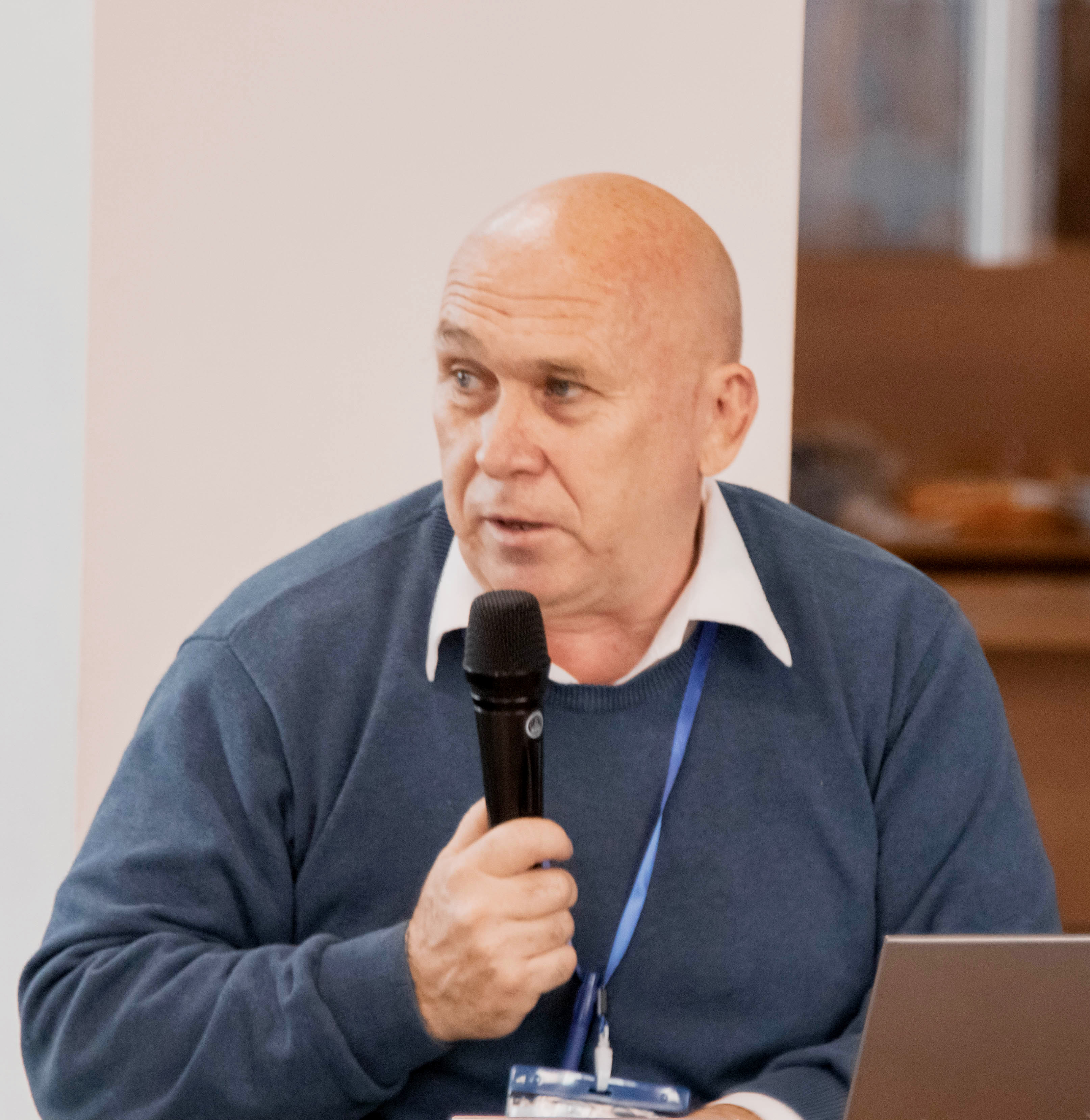
Approaches to Teaching the History of the Qing Empire as a Eurasian State
In Western historiography, and under its influence – in both Russian and in modern Chinese (XX-XXI centuries) literature, the modern and contemporary history of China is usually viewed through the prism of the standards of classical antiquity and the Ming Dynasty. The Han-centric model of Chinese history in world science does not allow us to see and recognize the Eurasian vector of China's development in the XVIII-XIX centuries. Most studies of Russian sinologists claim that the traditional model of Chinese civilization was completely preserved in the Qing period, there was no mechanism for mutual enrichment of cultures. We believe that the Qing period of China's history was the time of the creation of the "state of five nationalities" and the confrontation of various intra-Han ethnic and cultural groups. This was the period of the "great tracks", such as the resettlement of the Western Mongols, the resettlement of the Sibo tribes from Manchuria to Xinjiang or individual Han communities from southern China to Manchuria, and so on. During the Qing period, Manchu, Mongolian and Chinese languages and literatures interacted closely, Tibetan and Chinese Buddhism, Chinese traditional cults and beliefs and shamanism interacted, economic and cultural types were transformed, civil and military-administrative state institutions coexisted. Thus, Qing China, while preserving the Han cultural basis, nevertheless became a Eurasian empire.
Time and date of presentation: April 10, 2023 at 16:15 (UTC+3)
Yong-Chool Ha
University Of Washington, USA

Tradition and overcoming universalism in the social sciences
Universalism has long been lost in the social sciences without the emergence of alternatives. The prevalent political economy paradigm has paid little attention to macro social changes. Rational choice is more about methodology than a framework approach and understanding macro trends in society and politics. We have been living without a sense of the whole under the hypnotic influence of new technologies.
If Marxism or functionalism is no longer adequate, what would be an alternative to draw a picture of society as a whole? Dr. Ha goes beyond deconstructing universalistic thinking about social change by proposing tradition as a way to understand social changes in late industrialization. Based on the comparative observations of tradition in South Korea, Japan, Germany and the Soviet Union, Dr. Ha argues that tradition is a critical factor in the analysis of social change under late industrialization. Based on a different interpretation of the role of tradition in late industrialization, Dr. Ha presents alternative ways to approach democratization, civil society and international relations.
Time and date of presentation: April 6, 2023 at 10:00 (UTC+3)
Format of presentation: Online
Siyuan Jiang
China National Committee for SCO Legal Service Exchange and Cooperation, Shanghai University of Political Science and Law, Сoordinator of the mechanism for the meeting of Ministers of the SCO member states under the Ministry of Justice
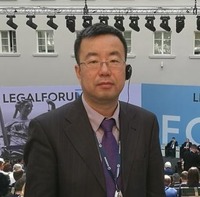
Digitalization of the platform of providing trans-border legal services: the case of the reform on platforming legal services for the Shanghai Cooperation Organization
With the advent of the “Fourth Industrial Revolution”, artificial intelligence (AI), the Internet, the Internet of Things, cloud computing, and Big Data have been mushrooming. “Internet Plus” has come to the fore nowadays. With various industries getting to apply Big Data, which make them more integrated with the Internet, the legal service industry cannot stay out. At present, with the wave of digitization surging, traditional legal service of cross-border business cooperation is still deficient in many ways. Taking legal service between the member states of the Shanghai Cooperation Organization (SCO) as an example, its operation still has widespread flaws in traditional cross-border legal services. For example, special cases are dealt with in special proceedings by specially invited experts; one method is only used on one case; case elements are scattered and standardized information is unbalanced; the approval process takes too long and with complicated procedures. In the context of a new round of industrial transformation, the Internet will change the developmental pattern of the legal service industry, as well as social production and lifestyles. In the future, the reform of digital construction of the SCO legal service platform should rely on the current situation on the legal service market in various SCO states, strengthen policy guidance, technical guidance, compliance consultation, project cooperation, conducting a series of opinion polls in the sphere of environment and labour standards according to the actual situation of regional economic and trade cooperation. It’s important to strengthen platform-based implementation of policy guidelines, technical guidance, compliance consultation, project collaboration and public opinion polling on working conditions.
Time and date of presentation: April 5, 2023 at 10:00 (UTC+3)
Format of presentation: Online
Yuheng Li
Institute of Geographic Sciences and Natural Resources Research, Chinese Academy of Sciences, China
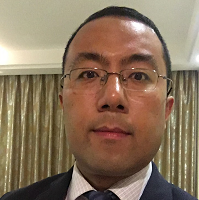
China's rural revitalization strategy and its socioeconomic effect
Special attention needs to be paid to the phenomenon of rural decline, which has swept the world with a drastic drop in rural life quality, shrinkage of rural communities and local economies, as well as an increasing desire among youngsters to leave their home villages. Being a populous country, China's urbanization has been at an unprecedented speed since 1978 when the state started to implement reform and opening-up. However, the rapid urbanization has been accompanied by rural depopulation and giant mobility from less developed countryside to metropolitan areas. As a result, rural decline emerged owing to depopulation and triggered concerns about the care of left-behind population, local industrial recession, labour shortages, culture conservation and food security, etc. Against this background, China initiated its rural revitalization strategy in 2017 with the aim of achieving comprehensive revival of rural economy, people’s livelihood, culture, ecology and organization.
The presentation aims to investigate China’s rural revitalization strategy and examines its socioeconomic effect. Analysis is carried out to illustrate China’s urbanization processes and rural development in different historic stages since the PRC was founded in 1949. Then, a detailed analysis is made to show the attributes and scientific logic of this strategy. Case studies are also presented to show the socioeconomic effect of the rural revitalization strategy.
The report will be presented at the Roundtable B-13-3/1 "Role of Agrarian Universities and the Academic Community in the Development of Rural Areas in Russia and in the World"
Time and date of presentation: April 13, 2023 at 14:30 (UTC+3)
Format of presentation: Hybrid
Andrey Malenko
University of Michigan, USA

Catching outliers: committee voting and the limits of consensus when financing innovation
We will present novel evidence that a substantial share of venture capital investors in the US use a voting model where a single partner “championing” an early-stage investment is sufficient for an investment committee to do the deal, even if other partners are not as enthusiastic. Their stated reason for this voting rule is to “catch outliers”. The same VCs also tend towards more conventional “majority” or “unanimity” rules for later stage investments. We analyze this evidence through the lens of several conventional models of information aggregation in committees, and conclude that it points to a model in which different voting partners get signals about different aspects of the project and superstar projects are the ones that excel on certain dimensions even if potentially flawed on others. In this instance, if the distribution of investment returns is sufficiently heavy-tailed, a champions rule is optimal, while for less heavy-tailed distributions, more consensus is optimal. We then empirically show that the distribution of early stage returns have significantly heavier tails than late stage returns, thus validating the model. In a quantitative example, we find that a majority voting rule in early-stage investing reduces the chances of finding the best investment by up to 70% relative to the “champions” model.
Time and date of presentation: April 10, 2023 at 14:30 (UTC+3)
Format of presentation: Online
Arunava Sen
Indian Statistical Institute, India
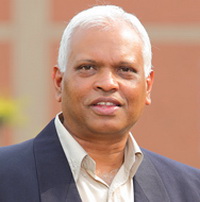
Priority domains (jointly with Ankit Singh)
We analyze preference domains (so-called priority domains) where every strategy-proof, non-bossy and neutral allocation rule is a priority rule. It considers two versions of neutrality: unanimous prole neutrality or UPN neutrality, where the neutrality axiom
only applies to preference proles where all agents have a common preference ordering and full neutrality or FN neutrality, where the neutrality axiom applies generally. We show that a very simple condition characterizes priority domains under the UPN axiom. If these domains satisfy a mild richness condition, they must be the universal domain. The class of priority domains under the FN axiom is larger than those satisfying only UPN. We identify an FN-priority domain that is of order 1/n relative to the universal domain.
Time and date of presentation: April 11, 2023 at 10:00 (UTC+3)
Format of presentation: Online
Kazi Sohag
Ural Federal University, Russia

Oil market shocks and financial stress amid geopolitical risks in Russia
For Russia, as a non-OPEC oil-dependent economy, oil market volatilities can transmit a significant shock to the financial market. Abrupt oil market shocks pose severe challenges to macroeconomic performance, including the financial market. To this end, we shall assess the transmission effect of oil price shocks decomposing into supply, demand and risk oil shocks on the financial stress for Russia's economy. In doing so, we apply Cross-Quantilogram and Cross-spectral quantile coherency approaches to analyze daily data from July 13 2012 to March 17, 2022. Our empirical analysis demonstrates that financial stress intensifies due to demand and supply side shocks of the oil market in the short memory at the bullish state of oil price shock and a higher quantile of Russian financial stress. In turn, financial stress declines in reaction to oil market demand and supply side shocks in the long memory at lower to the medium quantile of oil price shocks and at medium quantile to higher quantile of financial stress. In turn, financial stress intensifies with an increase in oil risk shock in long-term memory at the higher quantile of both indicators. The negative responsiveness of financial stress to risk-side shock is manifested at higher quantiles of financial stress and at lower to medium quantiles of oil risk shock in short-term memory.
Time and date of presentation: April 10, 2023 at 11:45 (UTC+3)
Format of presentation: Hybrid
Peter Verhezen
University of Antwerp, Belgium

Why AI can make us smarter but not wiser?
In this talk, Professor Peter Verhezen will discuss the potential of Artificial Intelligence (AI) in addressing sustainability challenges in business. The talk will provide a review of the capabilities and limitations of AI, acknowledging its potential to make us smarter and more efficient, while also recognizing that it cannot replace human wisdom and moral values. The speaker will emphasize the importance of distinguishing between intelligence and consciousness, arguing that while AI may occasionally outsmart us, it cannot “out-wise” us, and then touch upon the ChatGTP application, highlighting its capabilities and limitations, while also encouraging the audience to think critically about the role of AI in business decision-making. The talk will also highlight the practical applications of AI in improving sustainability in business, emphasizing its potential to help businesses make more informed and responsible decisions, reduce waste and emissions, and improve efficiency. The speaker will encourage the audience to use AI in general and ChatGPT in particular as a tool to complement human decision-making rather than replace it. Overall, the talk will provide a thought-provoking and informative overview of the current state of AI and its potential role in addressing sustainability challenges in business, while also highlighting the importance of balancing the benefits of AI with ethical considerations and the wisdom that comes from human consciousness.
Time and date of presentation: April 6, 2023 at 18:00 (UTC+3)
Format of presentation: Online
Guangjun Zhou
Beijing Law Firm «Xi Da Li», China
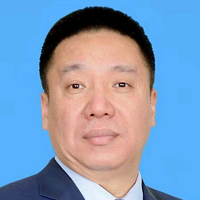
Commercial arbitration in China
In his representation, a distinguished Chinese attorney Mr. Zhou Guangjun sheds light on legal practices in dispute settlement in commercial arbitration under the Chinese national jurisdiction. The role of China's Supreme Court is underlined in recognition and enforcement of foreign arbitral awards. Special attention is paid to the mechanisms of control and application in international commercial arbitration. A case of the Russia-China relation is considered as an example. Also, the presentation touches upon the issues in litigating corporate disputes, filing lawsuits, and arbitration proceedings in China. In conclusion, the presentation specifies new perspectives and opportunities in dealing with foreign arbitral institutions according to the new Chinese arbitration law.
Time and date of presentation: April 6, 2023 at 10:00 (UTC+3)
Format of presentation: Online